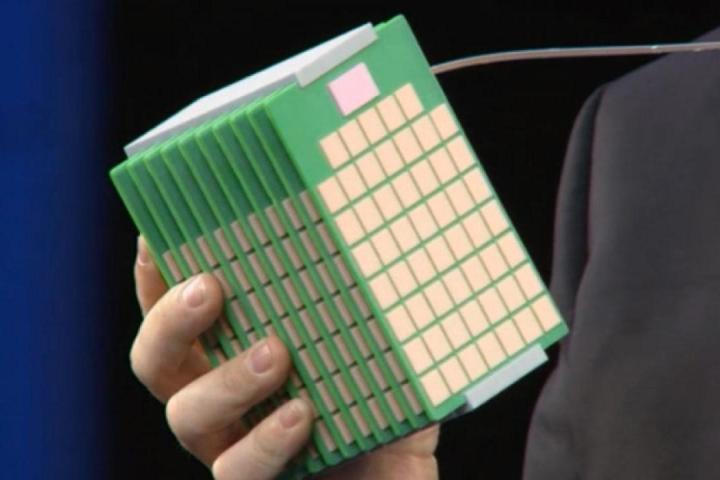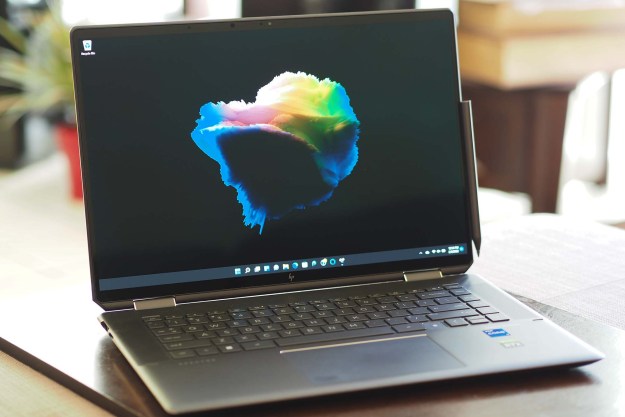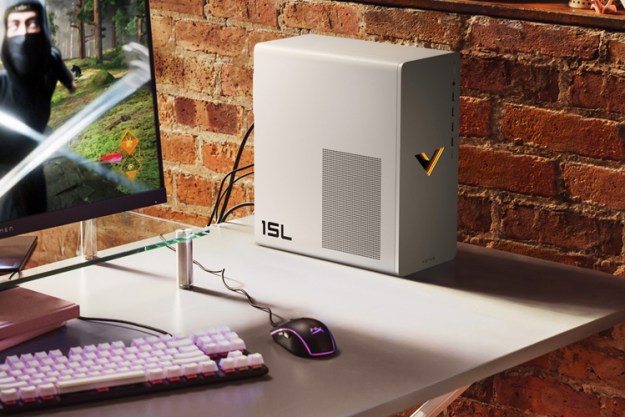
“Toward the end of this decade, data growth will come at us at a rate that surpasses the ability of our current infrastructure to evolve to ingest, store and analyze it,” HP says. “A step change in computing technology is required.”
In other words, HP is saying that what we’re doing now won’t suffice for much longer. We need something much faster and more capable of storing massive amounts of data in smaller spaces. To that end, HP recently announced its solution to the problem— dubbed “The Machine,” which is an all new supercomputer so efficient that, the company says, it can drastically reduce the space required by an entire data center.
Gigantic database-driven sites, such as Facebook, Amazon, and Google, are powered by massive data centers filled with racks upon racks of powerful integrated servers with formidable appetites for electricity. While this approach has been a viable solution so far, a major problem with these humongous server farms, is that, while you can expand capacity and increase computing power by simply adding more servers, more servers require more space and, alas, more power.
What is The Machine?
Two important components of The Machine are a new type of memory HP calls “memristors,” as well as a new data transfer system that uses silicon photonics. Memristors are a highly dense and fast memory type. An alternative to copper wire, silicon photonics will send data via lasers, which, according to HP, are about a quarter of the diameter of human hair. Switching to photonics in data centers would increase data transfers to about 160 petabytes in 250 nanoseconds—while using much less energy.
Not just servers
According to HP, HP Labs, the company’s R&D division, has been working on The Machine for about two years, reportedly committing as much as 75 percent of the lab’s personnel to work on this project. The company, according to CTO Martin Fink, not only believes that The Machine is a workable server technology, but that it can be adapted to power smartphones, PCs, and tablets. The Machine will, HP says, bring us supercharged mobile computing devices with storage capacities up to 100TB.
That’s many times more storage than the average laptop has today. Pools of processors and memory chips connected by photonic cables could carry up to 6TBps of data. As you might suspect, none of today’s operating systems are really designed to manage these massive amounts of data. Hence, HP plans to build a The Machine OS from the ground up, as well as versions for Linux and Google’s mobile OS.
However, as is the case with so many new and powerful computing technologies, HP’s initial focus will most likely be servers. Whether this technology— if it takes off at all —trickles down to PCs, laptops, and other mobile devices depends on a lot of factors, including but not limited to developments by other computer makers. IBM, for example, has made significant headway toward its 12-core Power8 CPU. The point is, HP won’t be developing The Machine in a vacuum without incurring competing ideas from other computer makers.
When will we see The Machine?
HP hasn’t announced a fixed timeline yet, but the company hopes The Machine-based devices will start rolling out by about 2018. That sounds rather ambitious, considering that, in addition to a lot of hardware, we’re looking at a new OS as well.
Most likely, it will probably be even closer to the end of the decade before we start seeing computing devices based on The Machine. In any case, computing devices and the Internet itself could be in for an overhaul if HP has its way.
Editors' Recommendations
- This HP laptop is discounted from $519 to $279
- One of HP’s best 2-in-1 laptops just had its price slashed to $460
- HP sale: Up to 68% off laptops, printers, monitors, and more
- This HP laptop is normally $1,453 — today it’s $579
- HP is having a sale on 1440p monitors — up to 66% off


